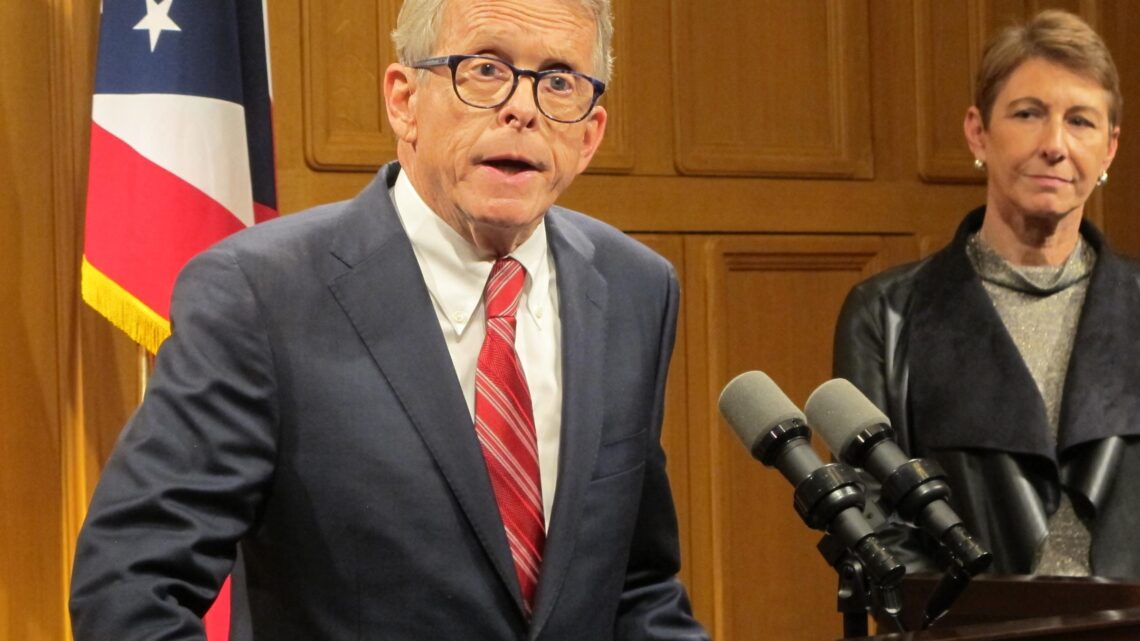
DeWine vetoes 14 items in Ohio budget before signing it
July 6, 2021Ohio Gov. Mike DeWine spent Thursday morning praising the General Assembly for the state’s new budget after removing several items late Wednesday night before signing it.
DeWine, who by law had to sign a balanced budget by July 1, used his veto to eliminate 14 items, fewer than previous years, saying the governor should concede to the Legislature when making those decisions.
DeWine called the budget a success that invests in a skilled workforce, health care, education, broadband expansion and public safety. The $74 billion two-year budget also includes a 3% across-the-board income tax reduction.
“At the start of the pandemic, we made tough choices. We cut spending and froze hiring. We did what we had to do,” DeWine said. “Ohioans are resilient, tough and strong. That fact that we now have this budget that invests in the future is thanks to what we all did as Ohioans early on.”
DeWine eliminated the General Assembly’s plan to vacate COVID-19 violations on businesses and refund any fines, along with an item he said risks the Medicaid overhaul already in place and puts lives at risk.
“The standard, in general, I think there should be a deference to the Legislature and to use the veto carefully, and if it’s a close call, I should defer to the Legislature,” DeWine said.
Office of Budget and Management Director Kim Murnieks called the budget balanced and successful, following a fiscal year that saw the state’s sales tax revenues exceed estimates by $1.5 billion.
DeWine left in a provision that stopped public-private partnerships with the state and local boards of elections in voter registration efforts, and another item that allows health care professionals to refuse care to individuals on moral grounds.
Voter rights groups, along with state Democrats, called the new law an effort to suppress voters throughout the state. DeWine and Lt. Gov. Jon Husted called those claims unfounded.
“That is just absurd. That is just ridiculous,” DeWine said. “What goes on in Ohio is a good system. It’s a system that has worked for a long, long time. We have had expansive voting in the state of Ohio for a long, long time.”
The governor also said the idea of medical professionals refusing care is a practice going on throughout the world and situations seem to work themselves out.
“We have to respect people’s rights and people’s ability to make those decisions,” DeWine said.
DeWine vetoed two provisions that dealt with Medicaid. The first, he said, restricted the Ohio Department of Developmental Disabilities and the Ohio Department of Medicaid from managing policies and costs. The second dealt with managed care procurement.
The governor also removed an item that required the State Controlling Board to have its agenda ready 14 days before a meeting, rather than seven, along with a provision that established a court of claims to hear open meeting violations. Currently, courts of common pleas hear those cases.
DeWine took out the General Assembly’s ability to intervene in executive branch litigation, and a provision that he said eliminated the director of mental and addiction from making appointments to county boards.
Also vetoed were four provisions dealing with education, including one that he said treated community and public schools differently and created an extra layer of bureaucracy for community schools. The others, he said, reduced accountability for community schools, would eliminate some nonpublic schools from participating in the state’s College Credit Plus program and eliminated an expedited approval process for EdChoice scholarships.
The governor also vetoed removing money from the Ohio Department of Taxation budget and excluding nursing facilities from quality incentive payment.
This article was originally posted on DeWine vetoes 14 items in Ohio budget before signing it


